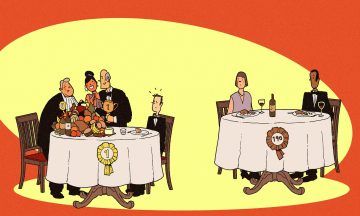 Quinn Slobodian in The Guardian:
Quinn Slobodian in The Guardian:
Two of the “freest economies” in the world are on fire. According to indexes of “economic freedom” published annually separately by two conservative thinktanks – the Heritage Foundation and the Fraser Institute – Hong Kong has been number one in the rankings for more than 20 years. Chile is ranked first in Latin America by both indexes, which also place it above Germany and Sweden in the global league table.
Violent protest in Hong Kong has entered its eighth month. The target is Beijing, but the lack of universal suffrage that is catalysing popular anger has long been part of Hong Kong’s economic model. In Chile, where student-led protests against a rise in subway fares turned into a nationwide anti-government movement, the death toll is at least 18.
The rage may be better explained by other rankings: Chile places in the top 25 for economic freedom – and also for income inequality. If Hong Kong were a country, it would be in the world’s top 10 most unequal. Observers often use the word neoliberalism to describe the policies behind this inequality. The term can seem vague, but the ideas behind the economic freedom index help to bring it into focus.
All rankings hold visions of utopia within them. The ideal world described by these indexes is one where property rights and security of contract are the highest values, inflation is the chief enemy of liberty, capital flight is a human right and democratic elections may work actively against the maintenance of economic freedom.
More here.
